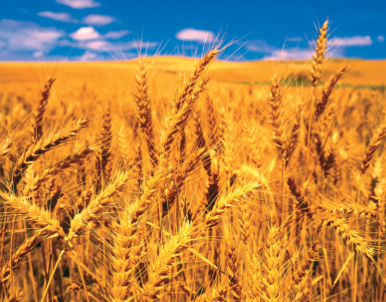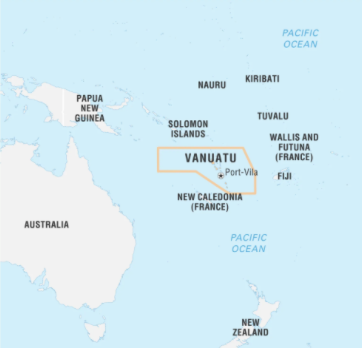Daily Current Affairs | March 10 2025 |
Important Topics from Current Affairs : 1) Women & Higher Judiciary 2) Climate Change’s Impact on Wheat Production 3) India-USA Extradition Treaty 4) Vanuatu Revokes Lalit Modi’s Citizenship
Jumbo IAS
3/10/20254 min read
1) Women & Higher Judiciary
Women in law have seen great progress in last 100 years.
The first woman lawyer, Cornelia Sorabji, was entitled to practice in 1924. Since then, the number of women lawyers has increased, several women have become Senior Advocates.
However, there remains a glass ceiling for women in Higher Judiciary.


State of Affairs
Women account for only 14.27% of judges (109 out of 764) in Indian High Courts. With some High Courts having no women judges.
Out of 25 High Courts, only Gujarat High Court has a woman Chief Justice.
In Supreme Court, there are just 2 women judges, out of sanctioned strength of 34.
Women judges are appointed at an average age of 53, while men are appointed at an average age of 51.
Reasons for Gender Imbalance
Lack of Transparency in Collegium System : The collegium lacks clear eligibility criteria for judges and thus creates scope for gender bias in recommendations.
Gender Bias - Over 75 years, only one woman has been elevated directly from the Bar to the Supreme Court, whereas nine men have been elevated via this route.
Less Social Capital with Women - Women lawyers face fewer networking opportunities, insufficient mentorship, and limited access to senior roles, reinforcing exclusion from higher judicial positions.
2) Climate Change’s Impact on Wheat Production
Indian Meteorological Department (IMD) has raised an alarm that the month of March will experience above normal temperatures & more than usual number heat waves days.
The period coincides with the beginning of India’s wheat harvest season, and extreme heat poses a grave threat for the country’s second-most consumed crop, after rice.


About Wheat
In India, Wheat is primarily grown in northwestern part of Indo-Gangetic Plains (Punjab, Haryana, Western UP & MP).
Wheat needs cooler weather to grow and hence it is sown in Oct-Dec period.
It is harvested in Feb-April period in the Rabi crop season.
Impact of Climate Change on Wheat :
Yield - Rising temperatures cause early ripening and shorter grain filling period, thereby reducing yield.
Quality - Heat stress reduces starch content, producing harder grains with lower milling value and lower quality of grains.
Food Security - This Impacts food security and food inflation.
Way Forward
Heat-Resilient Crop Varieties: Developing wheat varieties with shorter growth cycles reduces exposure to peak heat periods.
Early Sowing Practices: Encouraging earlier sowing in heat-vulnerable regions can prevent crops from maturing during extreme temperatures.
Enhanced Weather Monitoring: Strengthening real-time advisory systems helps farmers make informed decisions on sowing and irrigation.
Precision Farming Techniques: Such as drip irrigation, soil sensors, and controlled fertiliser use improve efficiency.
Policy Support: Expanding compensation schemes, climate-specific insurance, and credit facilities for farmers.
3) India-USA Extradition Treaty
Justice Elena Kagan of the US Supreme Court on Thursday (March 6) rejected Lashkar-e-Taiba (LeT) member Tahawwur Rana’s plea to stay his extradition to India.
Donald Trump on February 14 announced that his administration had approved Rana’s extradition to India.
Tahawwur Rana was a plotter of 26/11 Mumbai Attacks.


Extradition
An extradition treaty is a formal agreement between two countries to transfer individuals accused or convicted of serious crimes.
India has extradition treaties with 48 countries, that included the likes of USA, UK, Canada, Australia etc.
India also has extradition arrangements with 12 additional countries, allowing case-specific extradition.
Extradition procedures in India are governed by Extradition Act of 1962.
Extradition Procedure in India
India initiates extradition through diplomatic channels after verifying legal requirements.
The request is forwarded to the foreign country’s legal system for approval.
If approved, law enforcement agencies coordinate the fugitive’s transfer to India.
Authorities Involved in Extradition :
Ministry of External Affairs for processing extradition requests from foreign governments.
Central Bureau of Investigation (CBI) for handling extradition-related investigations.
NIA for cases related to terrorism and national security.
Key Features of Extradition Act 1962
Dual Criminality - The offence must be a crime in both India and the requesting country.
Bar on Political Crime - Individuals cannot be extradited for political offences.
The fugitive can only be tried for the crime they were extradited for.
Human Rights Considerations - No extradition if there is a risk of torture or an unfair trial.
4) Vanuatu Revokes Lalit Modi’s Citizenship
Prime Minister of Pacific island nation Vanuatu, Jotham Napat, ordered cancellation of the passport that his government had issued to fugitive billionaire Lalit Modi.
He stated that acquiring Vanuatu’s passport should not be a means to avoid extradition.
This issue has raised a debate over Vanuatu’s controversial Citizenship by Investment Program (CBI).


About Vanuatu
It is an island nation in the South Pacific Ocean, situated 1,750 km east of Australia.
It consists of 83 volcanic islands, covering a total land area of 12,189 sq. km, with capital city at Port Vila.
It has tropical climate with frequent earthquake and volcanic eruptions due to its location at Pacific Ring of Fire.
It is rich in coral reefs, deep-sea fisheries, and marine biodiversity.
Citizenship by Investment Program
Allows foreign nationals to acquire citizenship through investment or financial contributions.
Often used by individuals seeking visa-free travel or tax advantages.
Lalit Modi :
Former IPL chairman Lalit Modi’s Vanuatu citizenship was revoked by Prime Minister Jotham Napat on March 10, 2025.
Authorities cited concerns over using citizenship to evade extradition.


